
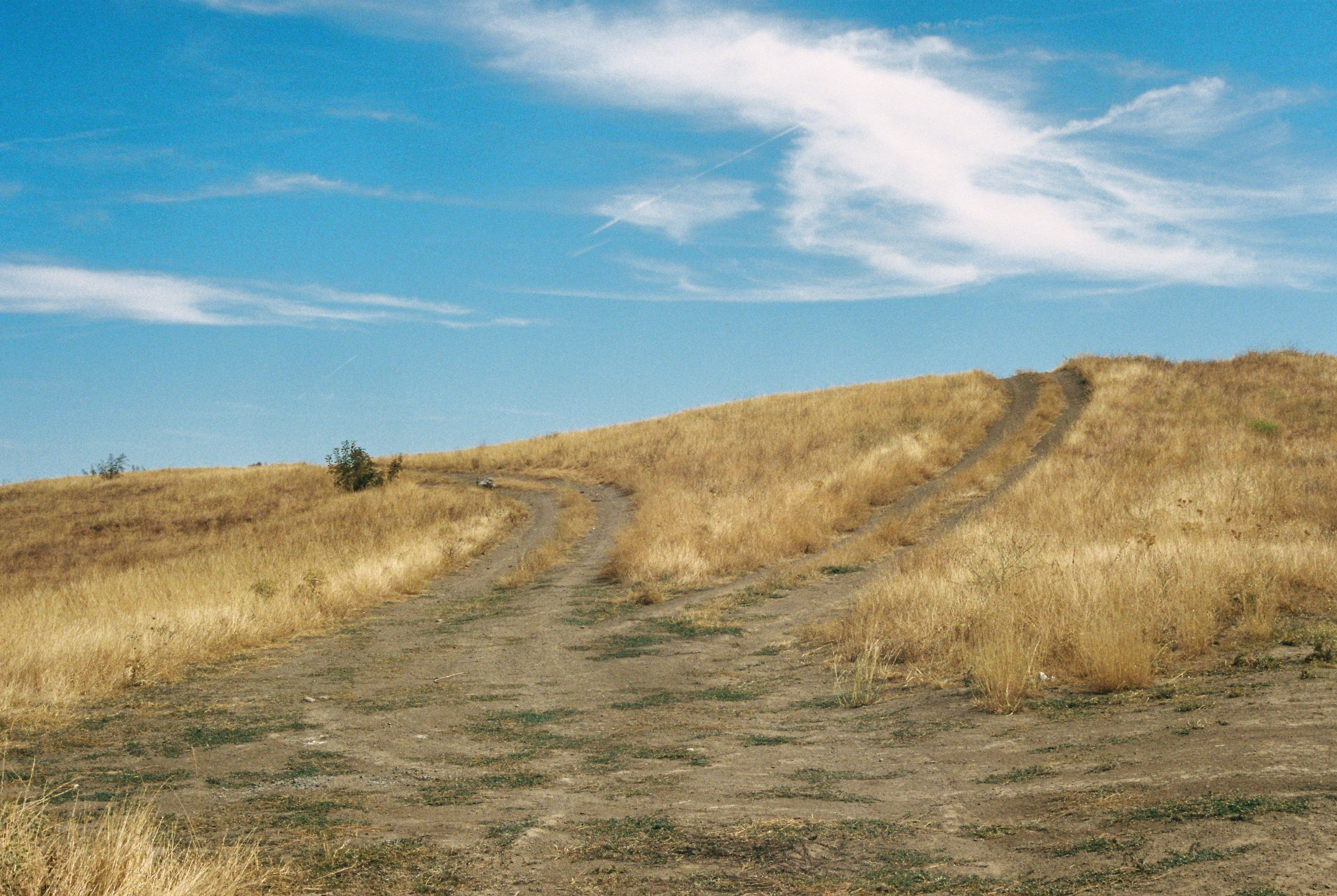





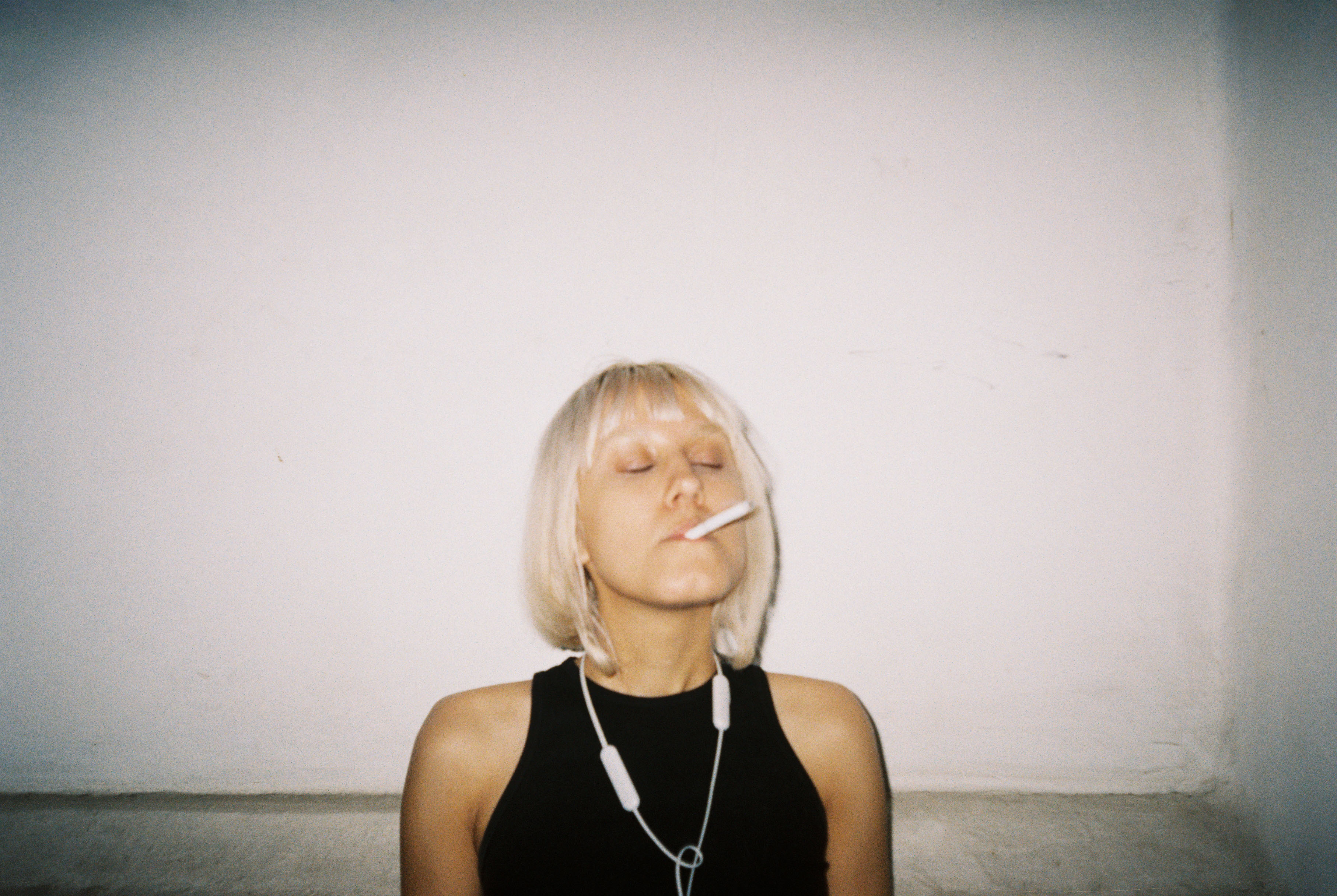




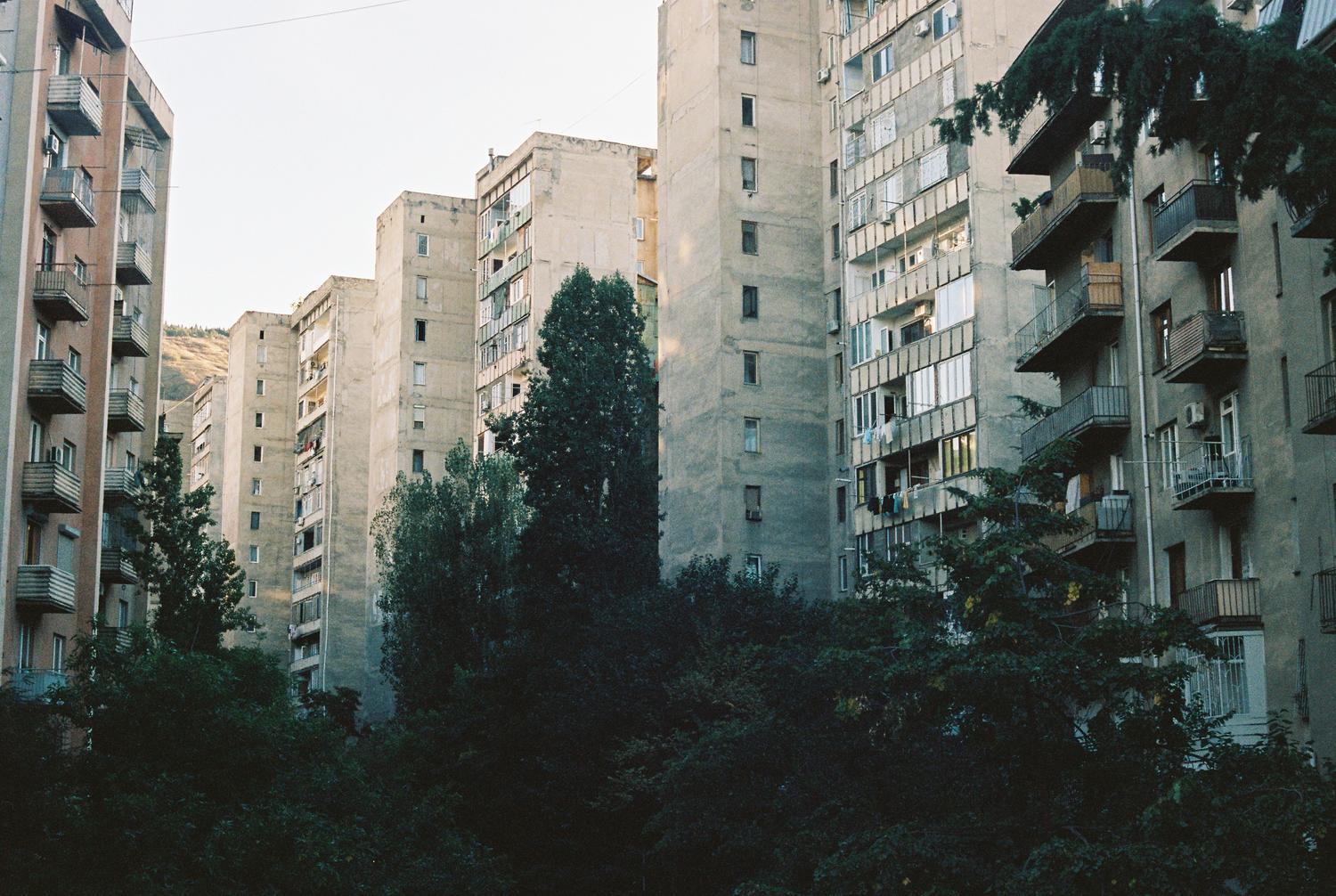


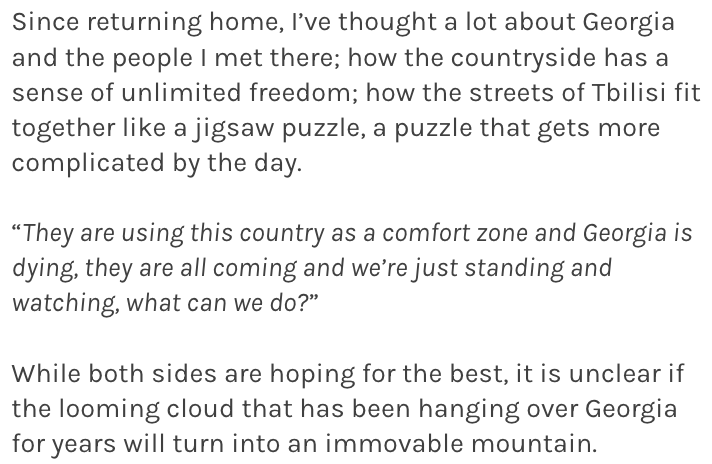
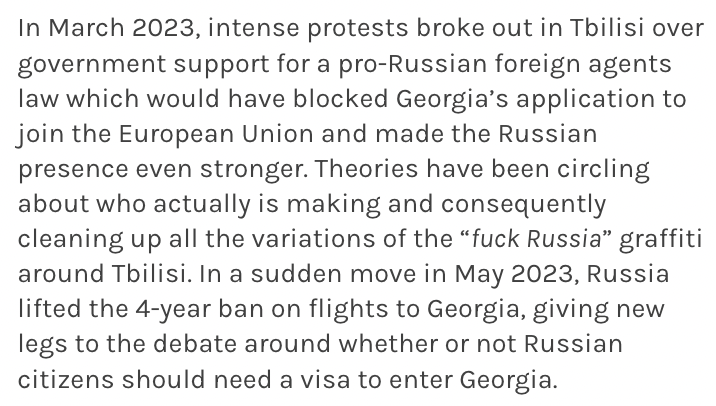
The photographs were made throughout Georgia in the autumn of 2022 and spring of 2023. What started out as photographing a trip across the country, developed into an observation of the current tensions in Georgia following the influx of Russian immigrants after the start of the war in Ukraine.
The portraits encompass three different perspectives: local Georgians, Russian nationals and other foreign visitors who, like myself prior to arrival, were unaware of just how complicated the relationship between these two countries really is. The events photographed and mentioned are a precursor to both the recent election that took place in Georgia on October 26th 2024, and the ongoing protests resulting from the ruling Georgian Dream party's controversial decision to delay Georgia's bid to join the European Union.
—----------------------—----------------------—------------------
'three circles around the sea' was published by Out Of Place Books at the end of 2024, more information can be found here.
A solo exhibition of the work was presented at Levels Gallery, Berlin which combined prints, slideshows and original music composed for the project. Further information and installation photos can be found here.
The portraits encompass three different perspectives: local Georgians, Russian nationals and other foreign visitors who, like myself prior to arrival, were unaware of just how complicated the relationship between these two countries really is. The events photographed and mentioned are a precursor to both the recent election that took place in Georgia on October 26th 2024, and the ongoing protests resulting from the ruling Georgian Dream party's controversial decision to delay Georgia's bid to join the European Union.
—----------------------—----------------------—------------------
'three circles around the sea' was published by Out Of Place Books at the end of 2024, more information can be found here.
A solo exhibition of the work was presented at Levels Gallery, Berlin which combined prints, slideshows and original music composed for the project. Further information and installation photos can be found here.